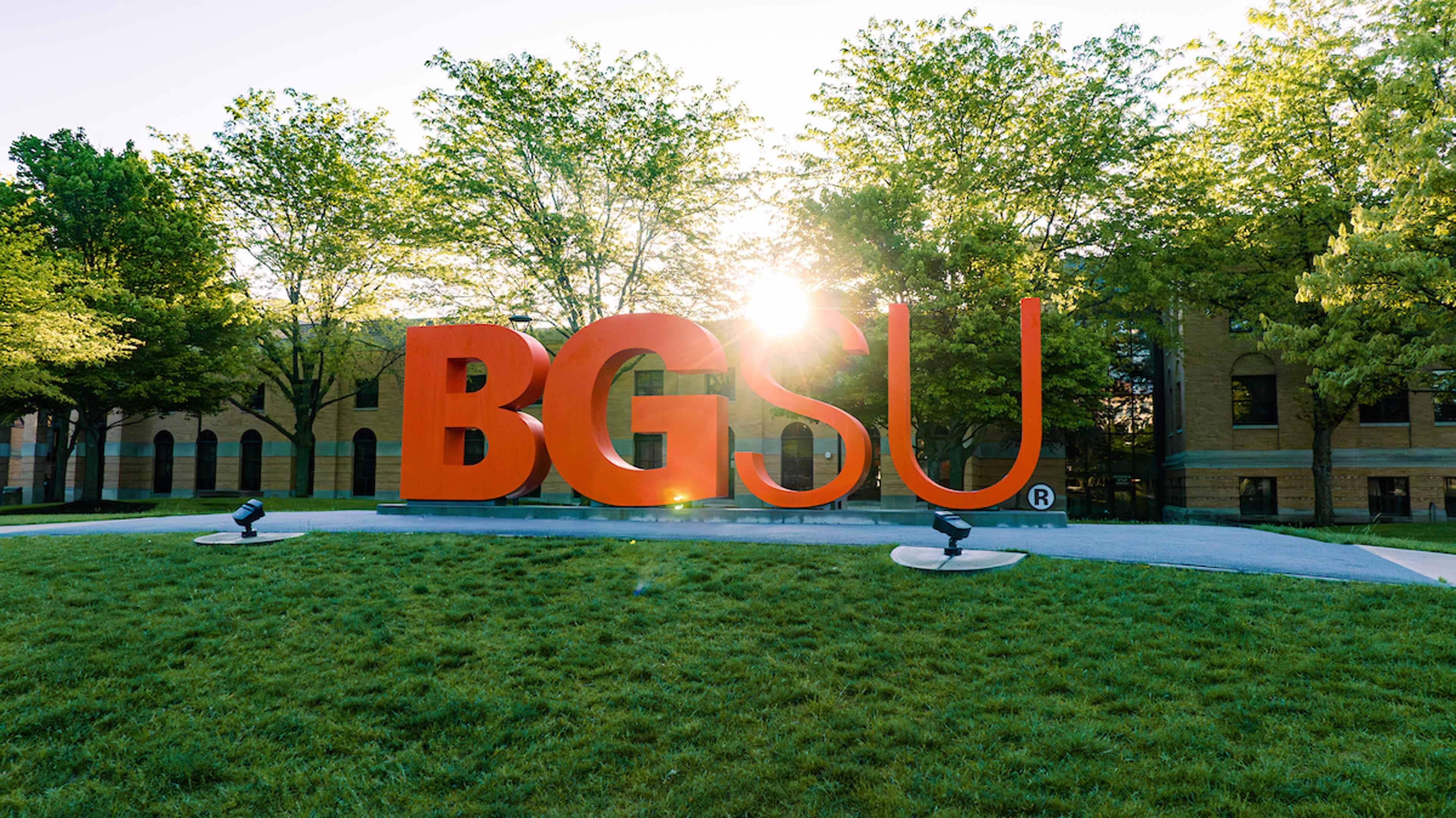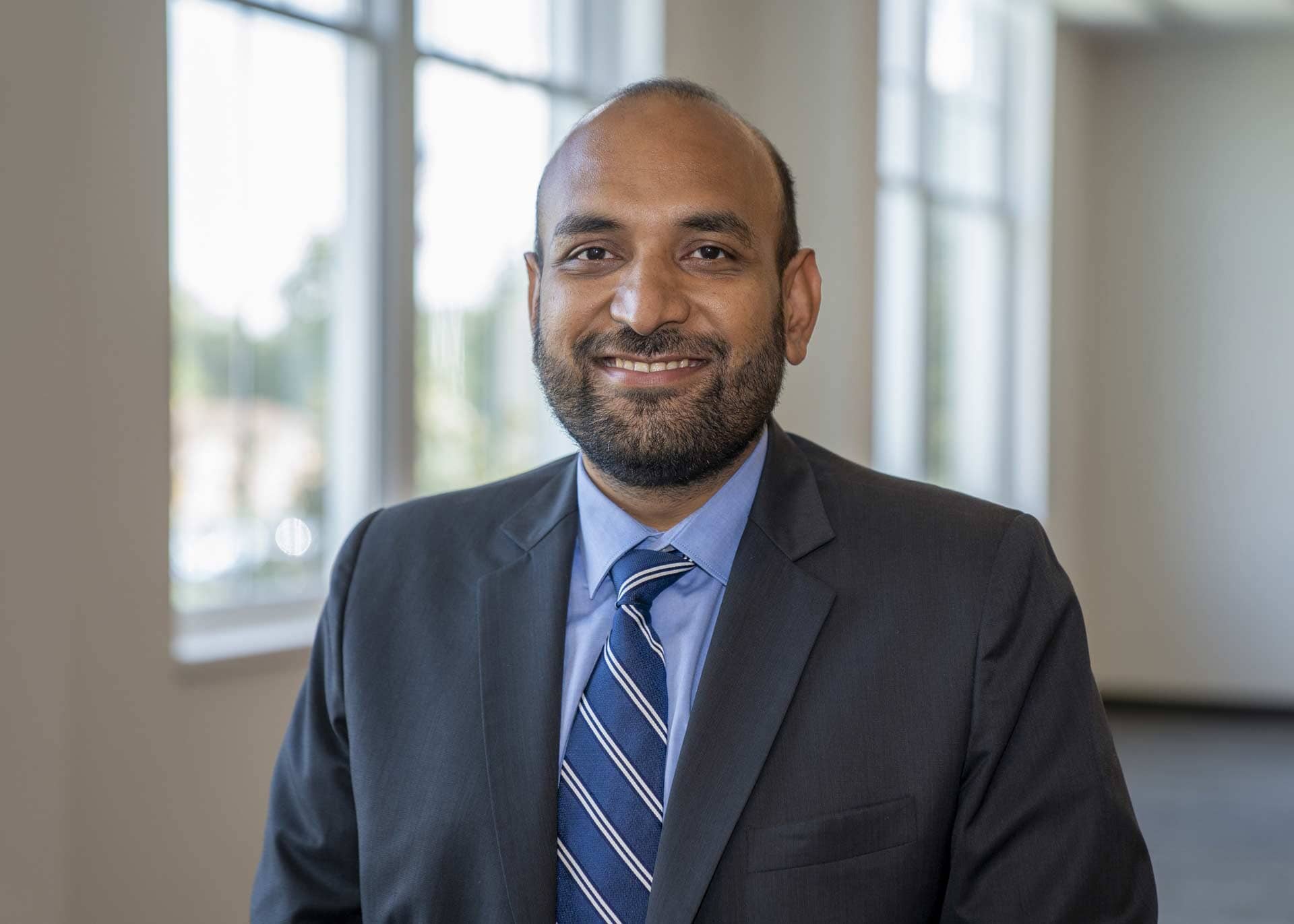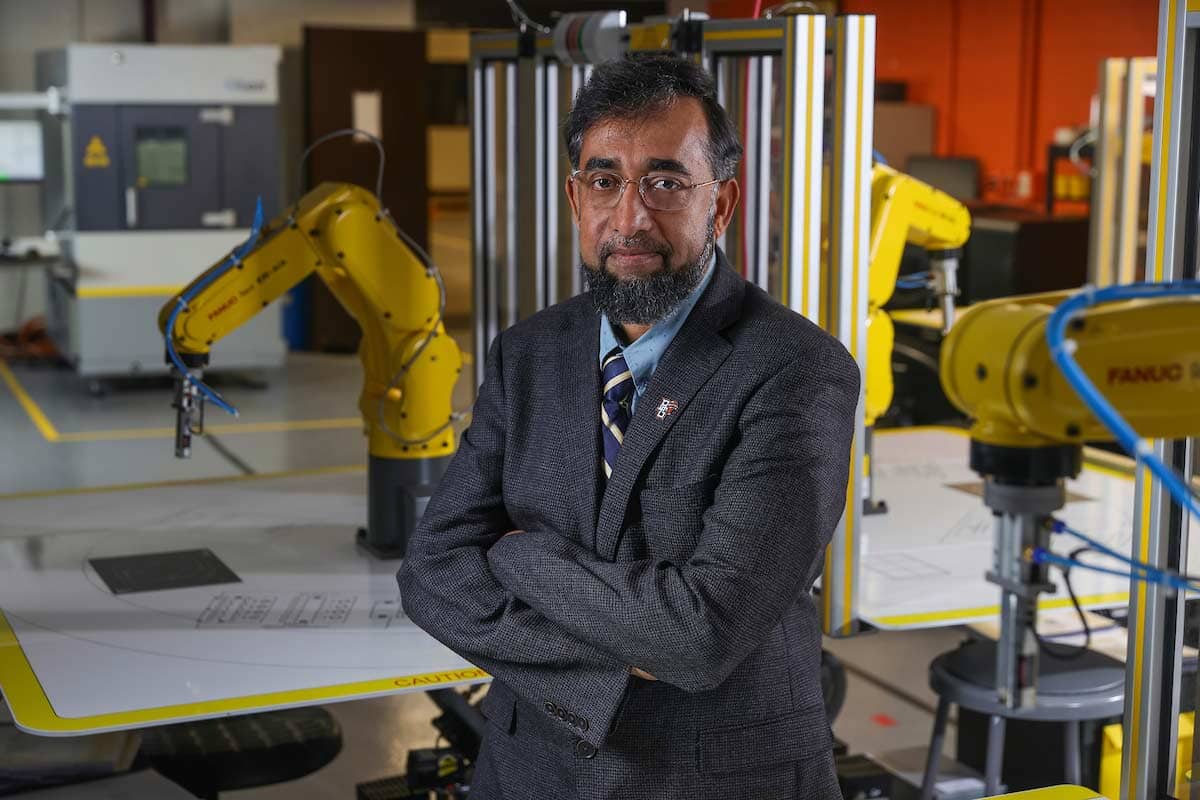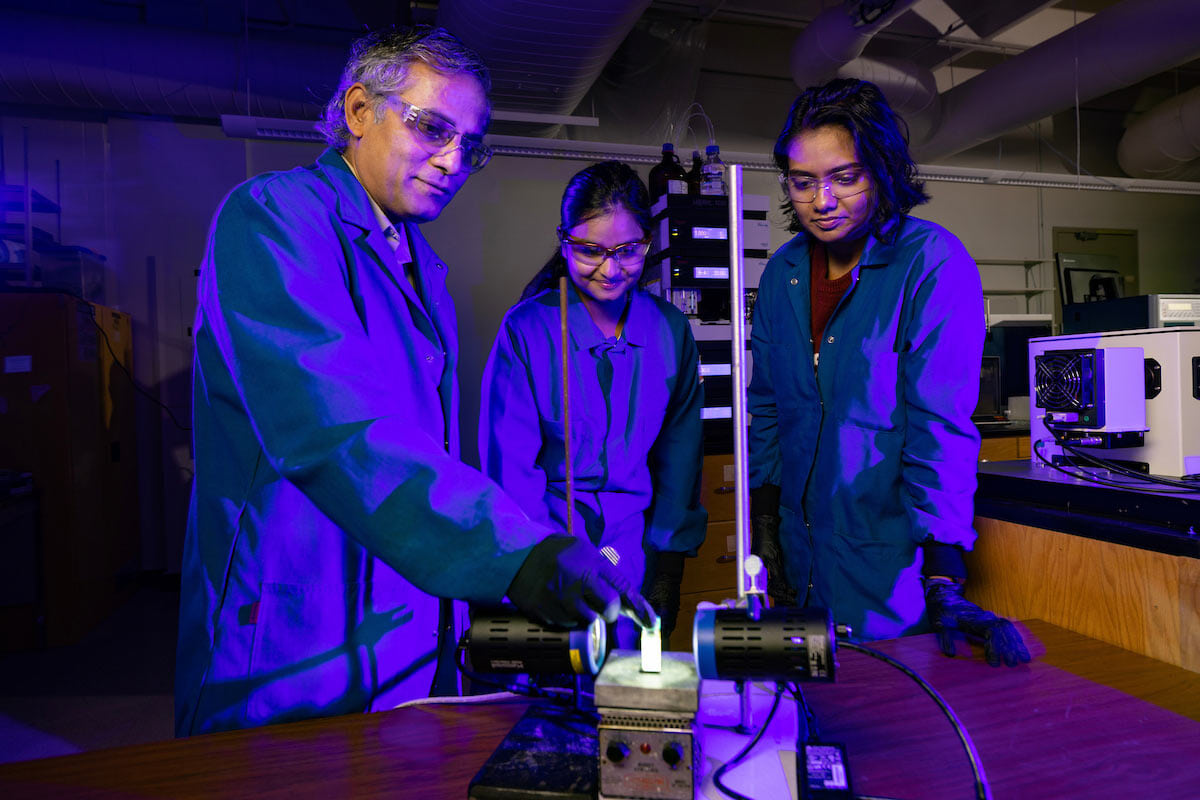
BGSU faculty members named Fulbright Scholars for prestigious national research program
Estimated Reading Time:
Four BGSU faculty members will conduct research overseas as part of the U.S. State Department's nationally recognized program
By Branden Ferguson
The U.S. Department of State has selected four faculty members from Bowling Green State University, representing two different colleges, to conduct research in artificial intelligence, supply chain engineering and chemistry overseas as part of the prestigious Fulbright Program.
Dr. Abhishek Bhati, associate professor of political science; Dr. MD Sarder, systems engineering professor and director of the BGSU School of Engineering; Dr. Malcolm D. E. Forbes, professor of chemistry and Dr. Jayaraman Sivaguru, distinguished university professor, are conducting research and teaching overseas, creating global public good.
Bhati, Forbes, Sivaguru and Sarder are among approximately 800 U.S. scholars who are annually awarded Fulbright grants.

Bhati will travel to India, where his research will focus on nonprofits and civil society organizations (CSOs), examining how they can utilize generative AI technology to advance their missions while mitigating potential pitfalls and challenges associated with emerging technology.
"India has a robust social sector with more than 3 million CSOs, yet there are only a handful of studies that address these organizations in India," said Bhati. "As the second largest user of ChatGPT in the world, India has actively invested in AI and computing infrastructure, creating a fascinating geography to study from an emerging economy and soft power perspective."
Bhati said that nonprofit organizations are increasingly using AI to draft emails, create social media posts, make edits for websites and write solicitation letters and grant proposals.
"AI can make work more efficient and free up time for organizations to focus on their clients and beneficiaries by using automation," said Bhati. "With AI, organizations can help more people and use resources more efficiently."
Bhati will work at the Indian Institute of Technology, Delhi, as a research fellow, collecting and sharing his findings with civil society organizations in the region.

As Bhati works to understand AI integration with nonprofit organizations, Sarder will travel to Bangladesh, where he will take a global approach to exploring a rapidly growing industry.
"Bangladesh is becoming increasingly important in global supply chains, especially as one of the largest exporters of textiles and garments," said Sarder. "The country's growing industrial sector presents opportunities for research in supply chain resiliency and reshoring strategies, especially in response to global disruptions like the COVID-19 pandemic."
Sarder will travel to Bangladesh University of Engineering and Technology (BUET) to conduct his research, where he hopes to develop practical, locally relevant solutions to supply chain challenges that have potential global implications. He will join the university's Department of Industrial and Production Engineering.
Relatively new to Bangladeshi researchers, Sarder's supply chain resiliency research establishes a collaborative research foundation, provides educational opportunities for BUET and benefits the country as a whole.
"Modeling supply chain resilience in an international context is vital for addressing the complexities of global logistics," said Sarder. "This research will not only strengthen Bangladesh's ability to withstand disruptions but will also benefit the U.S. by enhancing the stability of shared supply chains, ensuring a smoother flow of goods and contributing to global economic resilience."

Earning his second Fulbright award, Forbes looks to expand on his research in spin chemistry, traveling to the University of São Paulo and the Federal University of Piaui in Brazil. Spin chemistry uses the angular momentum of atoms and electrons to help develop and optimize real-world applications such as solar energy conversion, quantum sensing and computation, animal migration and novel semiconductors.
"The expertise at both Brazilian universities leans toward optical methods of quantum state mixing chemistry, whereas I bring a deep understanding of electron spin state entanglement to the table," said Forbes. "This is a very natural collaboration that interfaces two different fields, trying to create and study new quantum entanglement phenomena."
In addition to collaborating on innovations in spin chemistry, Forbes will be teaching a short course in electron paramagnetic resonance spectroscopy in São Paulo, helping Brazilian graduate students understand electron spin properties.
At BGSU, Forbes' students are already working on producing new molecules that will be used in the upcoming studies.
"My students are working hard on applying their experience to help produce molecules that will drive our research," Forbes said. "The results from Brazil will stimulate my students and allow them to construct additional molecules that can optimize the entanglement process and the information transmission rates."
Forbes hopes his students will be able to travel to an international conference in photochemistry in São Paulo next year and present their results to a worldwide audience.

As a national leader in high-impact research, BGSU and Sivaguru have conducted groundbreaking photochemical research at the Center for Photochemical Sciences. As part of the Fulbright program, Sivaguru will travel to India, where he will focus on photochemistry and share his expertise with students at Indian Institute of Science-Bengaluru (IISc) and Indian Institute of Technology-Madras (IIT-M), two top-ranked institutions in India.
"I have the opportunity to explore the area of therapeutic drug delivery using a nano-container called dendrimers. IISc and IIT-M are the eminent institutions in India for scientific research and development, and I look forward to exploring and learning about new advancements in the field," said Sivaguru
While in India, Sivaguru will also engage with students at both institutions, teaching photochemistry.
"IIT-M is my alma mater, and it's exciting to be able to visit and engage with students and share the developments in the field of photochemistry," Sivaguru said.
With more than a dozen Fulbright Scholars in the past decade, BGSU continues to support high-impact research and create public good both domestically and internationally. As Fulbright Scholars, Bhati, Sarder, Forbes and Sivaguru look to make an international impact before returning to share their experiences with students.
"Successful completion of my research on supply chain resiliency in Bangladesh will identify key enablers and ways to minimize the effect of disruptions on transportation systems, leading to a resilient transportation system that is sustainable, flexible and less vulnerable," said Sarder. "I can then bring this knowledge back with me and share it directly with my students, further preparing them for successful careers."
Bhati and Sivaguru hope to develop connections with their host institutions in India, creating study abroad and collaboration opportunities between BGSU and international universities.
"Successful engagement as Fulbright Scholars will create relationships with the top educational institutions in India," said Sivaguru. "Strong relationships with these institutions will not only benefit our faculty, but also our students."
Related Stories
Media Contact | Michael Bratton | mbratto@bgsu.edu | 419-372-6349
Updated: 07/01/2025 09:45AM




